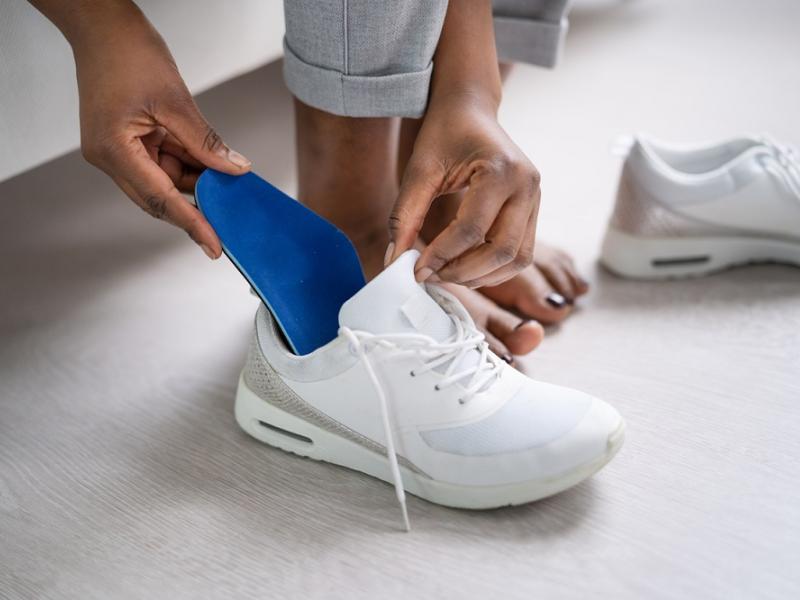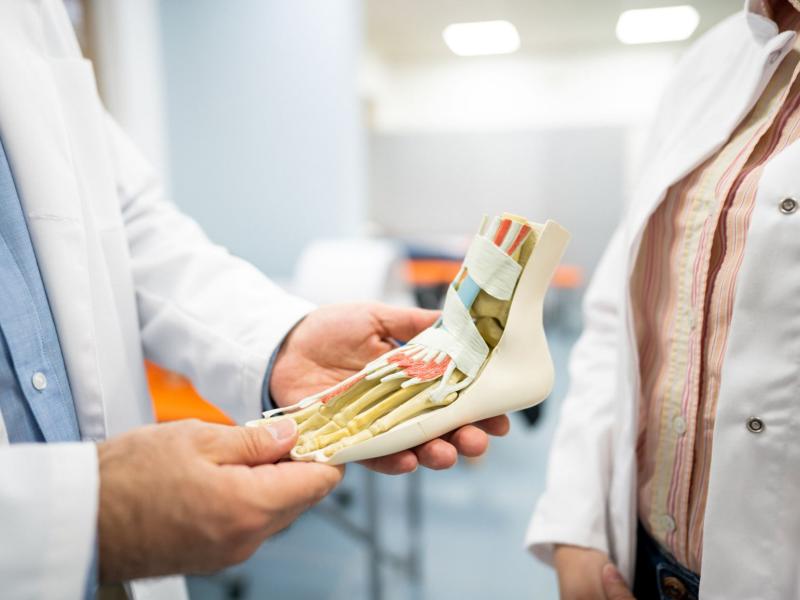Crocs offer comfort, breathability and convenience but lack essential arch support and stability for...
Read More
Morton’s neuromas are painful, non-cancerous tumors that develop on the ball of the foot. Although this inflammatory condition affects the nerves in your feet and can limit your mobility, our team of podiatrists can help you manage your symptoms and get back to your regular routine.
Morton’s neuromas are painful conditions affecting the foot, often occurring specifically in the area between the third and fourth toes. It happens when the tissue surrounding the nerves leading to the toes thickens, causing a pinched nerve. This condition is often caused by wearing tight or narrow shoes, repetitive foot stress or certain foot deformities.
Patients with neuroma typically experience symptoms such as sharp or burning pain in the ball of the foot, tingling or numbness in the affected toes and the sensation of having a pebble or marble under the foot. The pain may worsen with walking or wearing tight shoes, and some people may feel temporary relief by massaging the affected area or removing their shoes.
To diagnose a neuroma, your podiatrist will conduct a thorough examination, assessing the symptoms and performing physical tests such as squeezing the foot to elicit pain or applying pressure to the affected area. They may order imaging tests like X-rays or magnetic resonance imaging (MRI) scans to rule out other conditions or evaluate the severity of your condition.

Depending on your symptoms and lifestyle needs, your podiatrist may recommend treatments including:

The most common treatments for Morton’s neuromas include wearing shoes with a wider toe box, using shoe inserts or pads for cushioning and support, icing the affected area and avoiding activities that worsen your symptoms.

Injections of corticosteroids can help reduce inflammation and provide temporary relief from pain associated with neuromas.

In severe cases, surgical options such as a neuroma excision or decompression surgery may be considered to alleviate pressure on the affected nerve and provide long-term relief.
To treat Morton’s neuromas, Inspira podiatrists partner with patients to diagnose the severity of the condition, identify treatment options and decide on a plan that works best based on your individual needs. Regardless of which avenue you decide to explore, our doctors will guide you—providing all-encompassing support—to ensure your symptoms are managed and treated.
There is a possibility of a neuroma recurring after treatment, particularly if its underlying causes, such as improper footwear or repetitive foot stress, are not addressed. Following post-treatment recommendations and taking preventive measures can help reduce the risk of recurrence.
Recovery time after surgery varies for each individual, but it generally involves a period of rest, elevation and limited weight-bearing on the foot. Physical therapy and a gradual return to regular activities may be recommended, with full recovery typically taking several weeks to months.
A neuroma is a benign tumor of nerve tissue that is often associated with pain or specific types of various other symptoms. Neuromas most commonly arise from non-neuronal nervous tissue after amputation or trauma, or they can be true neoplasms.

Crocs offer comfort, breathability and convenience but lack essential arch support and stability for...
Read More
Learn effective strategies for safely managing corns, from gentle exfoliation and choosing...
Read More
Most people experience foot pain at some point in their lives, but it is important to know when to...
Read More